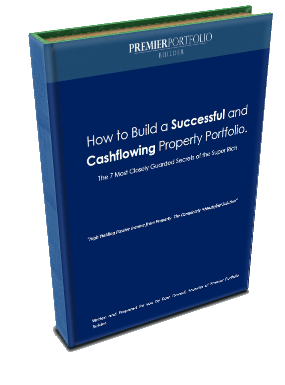
If you're thinking about investing in a rental property, experts say low home prices combined with low interest rates make this the best time in years to become a real-estate investor.
What's more, the real-estate market is starting to recover: U.S. houses lost $489 billion in value during the first 11 months of 2009, but that was significantly lower than the $3.6 trillion lost during 2008, according to real-estate website Zillow.com.
"We haven't seen home prices this low in so many years, coupled with the rates being so low," says Jill Sjolin, an agent with Windermere Real Estate in Woodinville, Wash., who specializes in investment properties. "When the money is cheap to borrow and the houses are cheap to buy, it's absolutely the best time to invest."
While the timing may be right, these five tips can help first-time investors take advantage of what might be the opportunity of a lifetime.
What's more, the real-estate market is starting to recover: U.S. houses lost $489 billion in value during the first 11 months of 2009, but that was significantly lower than the $3.6 trillion lost during 2008, according to real-estate website Zillow.com.
"We haven't seen home prices this low in so many years, coupled with the rates being so low," says Jill Sjolin, an agent with Windermere Real Estate in Woodinville, Wash., who specializes in investment properties. "When the money is cheap to borrow and the houses are cheap to buy, it's absolutely the best time to invest."
While the timing may be right, these five tips can help first-time investors take advantage of what might be the opportunity of a lifetime.
Know your options. Since not all investment properties are the same, it's important to determine what type of property fits your strategy, says Harrison Merrill, chief executive officer of Merrill Trust Group, a real-estate investment company based in Atlanta. Do you want to become a landlord, or would you rather restore and resell properties? Are you interested in apartment buildings and other commercial real estate, or in buying land that can be developed? First-time real-estate investors may want to start with residential housing, since commercial real estate and land development still face challenging market conditions, Merrill says.
Partner with experience. First-time investors should find a real-estate agent experienced in investment property deals who can help you locate promising properties. "Look for relational brokers who expect to do business with you again and therefore are going to be much more careful with what they recommend," Merrill says. A second option is to collaborate with a more experienced real-estate investor and close a deal together. In this economy, an experienced real-estate investor may be willing to work with you in exchange for the capital you can provide, giving you the opportunity to glean investment knowledge and experience firsthand, Merrill says.
Renting versus Buying
View more MSN videosGo to MoneyTrack
Look for the right location. If you buy a property with hopes of renting it out, location is key. Homes in high-rent or highly populated areas are ideal; stay away from rural areas where there are fewer people and a small pool of potential renters, Sjolin suggests. Also, look for homes with multiple bedrooms and bathrooms in neighborhoods that have a low crime rate. "Renters gravitate to a safe neighborhood, and if they have kids, they will want a good school district," Sjolin says. Also think about potential selling points for your property. If it's near public transportation, shopping malls or other amenities, it will attract renters, as well as potential buyers if you decide to sell later. The more you have to offer, the more likely you are to please potential renters, Sjolin says.
Check mortgage ratesBuild a supporting cast. Don't wait until a rental property needs repairs to find someone to handle them. "Line up maintenance individuals who can take care of the different challenges that occur so you can simply call the person when a particular issue comes up," Taylor says. Other sources you may want to have relationships with are an attorney to consult with on tenant issues, a property management firm to handle the day-to-day rental affairs and an accountant to help you understand the tax ramifications of investing. The more support you have, the better you will be able to handle the problems that come your way.
Read: Can flippers save the housing market?
Whatever you do, understand that buying investment property is an entirely different experience than buying your primary residence. "When you go to buy your own home, you usually have emotions in it," Sjolin says. "When you go to buy an investment property, you need to put all that aside and ask, 'What makes sense?'"http://realestate.msn.com/article.aspx?cp-documentid=23972039
Partner with experience. First-time investors should find a real-estate agent experienced in investment property deals who can help you locate promising properties. "Look for relational brokers who expect to do business with you again and therefore are going to be much more careful with what they recommend," Merrill says. A second option is to collaborate with a more experienced real-estate investor and close a deal together. In this economy, an experienced real-estate investor may be willing to work with you in exchange for the capital you can provide, giving you the opportunity to glean investment knowledge and experience firsthand, Merrill says.
- On our blog, 'Listed': Interest in investor properties triples
Renting versus Buying
View more MSN videosGo to MoneyTrack
Look for the right location. If you buy a property with hopes of renting it out, location is key. Homes in high-rent or highly populated areas are ideal; stay away from rural areas where there are fewer people and a small pool of potential renters, Sjolin suggests. Also, look for homes with multiple bedrooms and bathrooms in neighborhoods that have a low crime rate. "Renters gravitate to a safe neighborhood, and if they have kids, they will want a good school district," Sjolin says. Also think about potential selling points for your property. If it's near public transportation, shopping malls or other amenities, it will attract renters, as well as potential buyers if you decide to sell later. The more you have to offer, the more likely you are to please potential renters, Sjolin says.
- MSN Money: Why rent? To get richer
Check mortgage ratesBuild a supporting cast. Don't wait until a rental property needs repairs to find someone to handle them. "Line up maintenance individuals who can take care of the different challenges that occur so you can simply call the person when a particular issue comes up," Taylor says. Other sources you may want to have relationships with are an attorney to consult with on tenant issues, a property management firm to handle the day-to-day rental affairs and an accountant to help you understand the tax ramifications of investing. The more support you have, the better you will be able to handle the problems that come your way.
Read: Can flippers save the housing market?
Whatever you do, understand that buying investment property is an entirely different experience than buying your primary residence. "When you go to buy your own home, you usually have emotions in it," Sjolin says. "When you go to buy an investment property, you need to put all that aside and ask, 'What makes sense?'"http://realestate.msn.com/article.aspx?cp-documentid=23972039


 RSS Feed
RSS Feed
